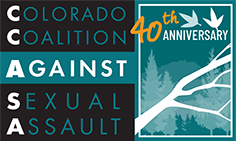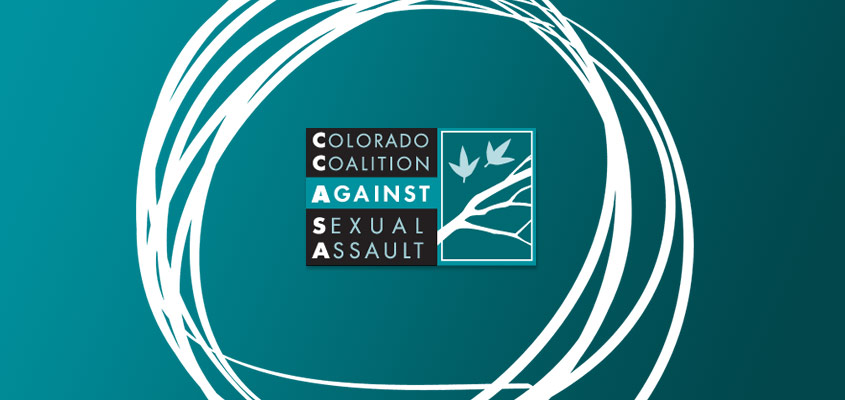By Darla Stuart, The Arc of Aurora

People with developmental disabilities are often unable to recognize dangers, to protect themselves from those dangers, and to obtain assistance from the criminal justice system when they have been victimized. They are statistically more likely to be victims of sexual assault, receive less support after being assaulted, and have little access to the justice system. Further, those providing care of and support for people with developmental disabilities are not trained in victimization so often people’s reports of sexual assault are treated with denial and/or psychotropic drugs. The importance of services and supports for victims of crime cannot be overstated. Too, crime prevention efforts are critical for safety. Often times, however, our services, supports and prevention efforts fall short…
Case-in-point: Several years ago I interviewed an adult woman, “Jane”, who has a developmental disability. Jane had been selected to have her story included in a traveling art exhibit, “Unheard Voices,” about survivors of sexual assault. The interview started with Jane sharing how she had been sexually assaulted as a young girl living in an institution. She said the staff person had known she was a fan of Elvis Presley and offered to play her his new album. Jane said the staff person tricked her. She said the institution discovered she had been assaulted when she was diagnosed with an STD. The man who assaulted her was fired. Jane then shared how she had been sexually assaulted in her early twenty’s when she was working at a restaurant. She said the staff person asked her to help in the walk-in refrigerator. She said the man tricked her. Again the man who assaulted her was fired. Jane finally shared that she was sexually assaulted in her forty’s when she was living in an apartment complex. She said the maintenance man had come to her apartment to repair something. This time, though, even though she was tricked, she had her own phone and reported the sexual assault to the police. The man was arrested and went to jail.
Sadly, Jane’s story of multiple sexual assaults, little victim support, and limited access to justice is typical for most people with developmental disabilities. In a 1991 study, Sobsey and Doe found that 83% of women with intellectual disabilities had been sexually assaulted and that of those, nearly 50% had been sexually assaulted multiple times. In that same study, the researchers estimated that 67% of perpetrators who abused individuals with severe cognitive disabilities accessed them through their work in disability services. Additional research suggests that 97 – 99% of abusers are known and trusted by the victim who has intellectual disabilities (Baladerian, 1991), as in Jane’s case.
The presence of a developmental disability creates a dependence on others for a myriad of care, services, and supports that range along a continuum that includes, for example, personal hygiene assistance, personal financial support, and transportation assistance. Merely by their reliance on such supports, people with developmental disabilities are considered powerless or are in situations where they feel powerless. Consider: if you, for instance, live in a group home or other setting where you do not even decide what you are having for dinner or when you go to bed, what power do you have to get help when a staff member is sexually assaulted you? Further, if the victimization is not recognized it can be guaranteed that the victim will not receive appropriate services and supports after the initial victimization. Sobsey (2000) cites a University of Alberta Violence and Disability Project study where only 20% of the women with developmental disabilities who were sexually assaulted received counseling or treatment services that met their needs. Sadly, more than a quarter (26%) were unable to access any services.
People with developmental disabilities are often unable to recognize dangers, to protect themselves from those dangers, and to obtain assistance from the criminal justice system when they have been victimized. But it doesn’t have to stay that way. The first step in addressing a problem is recognizing that it exists; services, supports and prevention efforts should include people with developmental disabilities.
Ms. Darla Stuart is the executive director of The Arc of Aurora. She was one of 40 disability advocates in 2003, selected to attend SafePlace’s first institute of train the trainers on “Stop the Violence, Break the Silence.” Darla is recognized as the co-author of two nationally distributed manuals, one on criminal justice issues “People with Developmental Disabilities and the Criminal Justice System: Access Denied” and one on the Human Genome Project and disability policy, “Have We Gotten Too Big for Our Genes?.” In her capacity as executive director, Darla oversees The Arc of Aurora’s activities including its focused outreach on impacting the issue of victimization and violence against people with intellectual and developmental disabilities through local, state and national collaborative work. Currently, Darla is actively involved in a systems change advocacy effort that would expand Colorado’s hearsay rules to support crime victims with intellectual and developmental disabilities.

